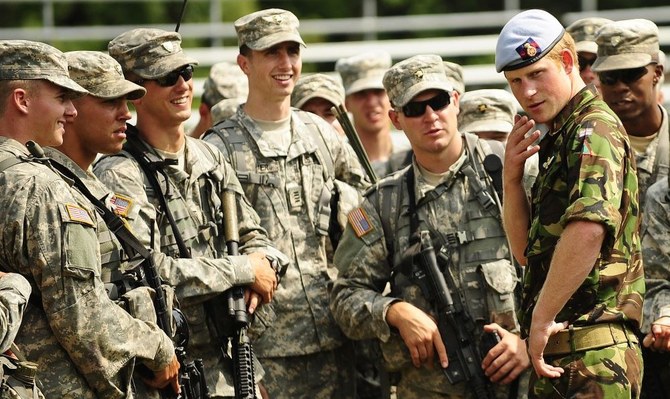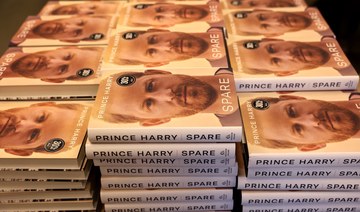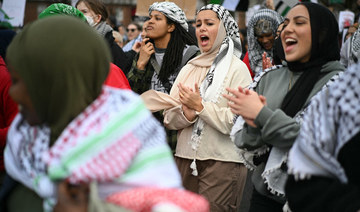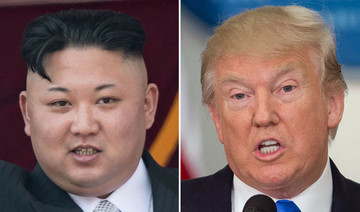LONDON: Prince Harry was “boasting” over his recollection of killing 25 Taliban fighters and has “let down” his former military colleagues, UK Defence Secretary Ben Wallace said in a radio interview, The Times reported.
The minister is the most senior figure to criticize the prince over his comments, which were part of the recently released memoir “Spare.”
In the book, Prince Harry claims to have killed 25 fighters while serving as an Apache helicopter pilot during the War in Afghanistan.
He said: “So my number is 25. It’s not a number that fills me with satisfaction, but nor does it embarrass me.
“When I found myself plunged in the heat and confusion of combat, I didn’t think of those 25 as people. They were chess pieces removed from the board. Bad people eliminated before they could kill good people.”
Wallace, who served with the armed forces in Northern Ireland and elsewhere, said during the interview on LBC: “Look, I think you’d have to ask Prince Harry … I frankly think boasting about tallies or talking about tallies does two things.
“It distorts the fact that the army is a team game. For an infanteer to go over the top, that person is supported by hundreds of people behind them, whether they’re in headquarters in Britain, whether they’re in the royal logistic corps, who helped them get there.
“It’s a team, and so it’s not about who can shoot the most or who doesn’t shoot the most.
“If you start talking about who did what, what you are actually doing is letting down all those other people, because you’re not a better person because you did and they didn’t.”
In a previous interview with The Sunday Times, Wallace spoke about his military experience in Northern Ireland.
He said: “The (Irish Republican Army) were very, very active. We had over 100 incidents: would-be bombings, shootings, riots.
“We had two soldiers die, one murdered, one committed suicide. There were some scary times, but I never felt scared.
“I can remember lying in bed and hearing a machine gun open up against the fence a few meters away from me. I was on the way to the cookhouse and they threw some grenades against the fence that blew up. Someone tried to throw a bomb at me once.”
Prince Harry has faced criticism from the UK’s military community over his memoir.
Derek Hunt, who campaigns for veteran mental health welfare, and whose son Nathan served in Afghanistan and later committed suicide, condemned “Spare” in comments to MailOnline.
He said: “However he tries to justify his comments, what he said cannot be unsaid. This is too painful for too many people to be discussed so loosely in public.
“Veterans were not crying out for this debate, they have spent years trying to forget about the realities of combat, such as taking people’s lives.
“If the disclosure was part of his therapy, then it should have stayed between him and his therapist.
“I think he has brought back a lot of memories for those men and women who served and are trying to forget. If all this was for their benefit, then Harry has made a mistake.”






















